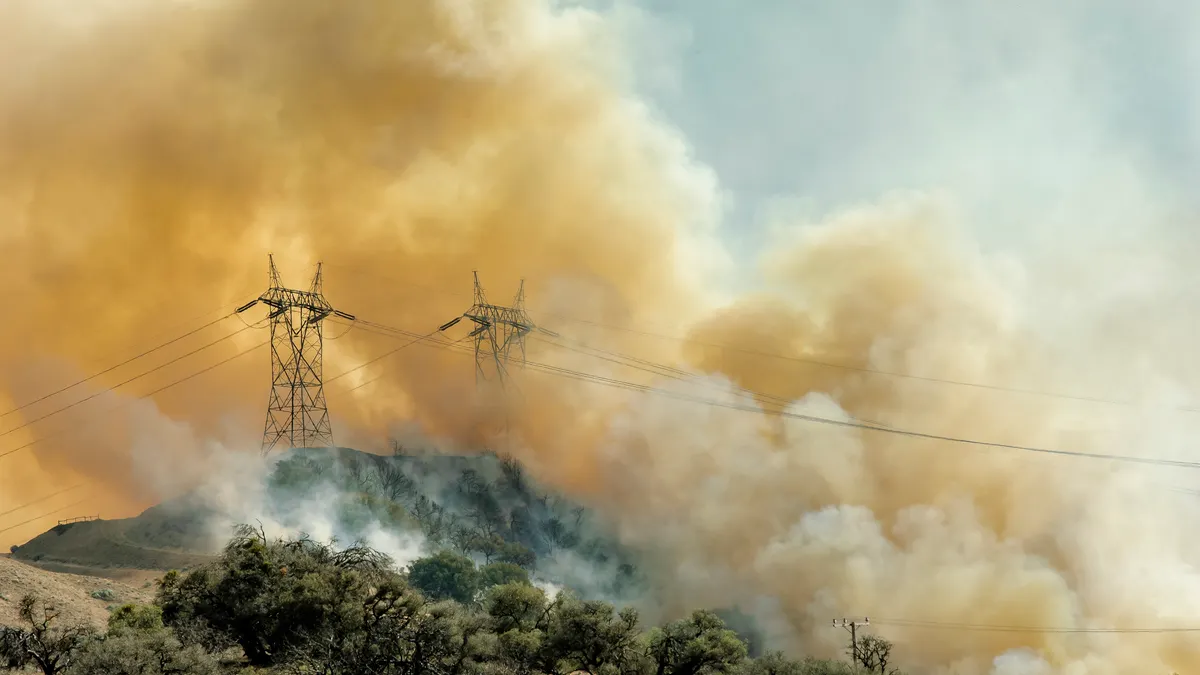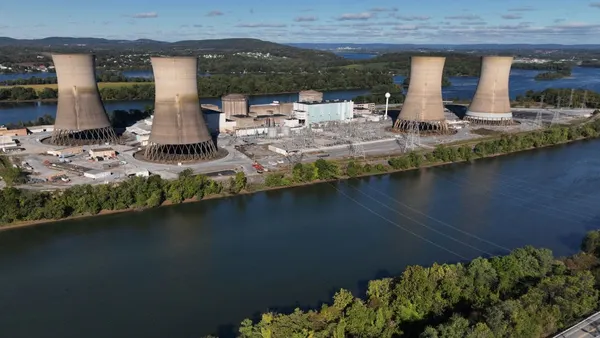Dive Brief:
-
The Federal Energy Regulatory Commission on Thursday opened a proceeding to begin examining how it can overhaul federal transmission policy, something experts say will be critical to bringing the U.S. power grid to 100% clean electricity.
-
FERC unanimously voted to approve an advanced notice of proposed rulemaking that will open up a public comment period on how the commission can best improve transmission planning, cost allocation and interconnection processes.
-
Commissioners emphasized the need to update transmission in order to accelerate the energy transition while keeping costs low for consumers, but acknowledged it would be complicated. "This is the beginning of a very long process," said Commissioner Mark Christie.
Dive Insight:
Transmission reform is seen as one of the biggest issues FERC can tackle to accelerate President Joe Biden's goal of bringing the U.S. power grid to 100% clean electricity by 2035, and creating a carbon-neutral economy by 2050.
Transmission planning was last taken on in 2011, when FERC passed its landmark Order 1000, intended to overhaul cost allocation and planning, and stakeholders have widely acknowledged the order did not work as intended and another change is needed.
FERC's Thursday vote marks the very beginning of the rulemaking process, as it precedes a notice of proposed rulemaking. According to staff's presentation, the advanced notice is an acknowledgement that the changing power mix requires an updated transmission system, and an effort to explore how the commission can improve long-term regional planning, cost allocation for interconnections and network upgrades, and oversight of how transmission facilities are identified and paid for.
Developers have long complained that the way transmission costs are allocated is unfair and can discourage development — a complaint in front of the commission from Tenaska alleges millions of dollars in overcharges from the Southwest Power Pool for network upgrades that the developer says it should not be responsible for. Meanwhile, uncertainty around those upgrades and their related costs is in part responsible for hundreds of gigawatts of renewable energy resources stuck in endless interconnection queues, according to the renewables industry and transmission experts.
Commissioner James Danly on Thursday cautioned against forgetting about ratepayers as the country attempts to accelerate power line buildouts.
FERC must "ensure that the ratepayers are kept in mind, because I can easily see with much of the enthusiasm for transmission buildout that we may lose sight of the fact that every policy that we implement has to still pay fidelity to the [just and reasonable] rates requirement," he said.
Christie also emphasized the need to keep consumers in mind, while acknowledging that the current system is not working.
"The interconnection queues are, I think — to put it charitably — a mess. And that's a problem that needs to be addressed. … There are a lot of problems that we need to address," he said, adding that opening up the issue now is "timely" given the country's efforts to reduce carbon emissions.
Commissioner Clements, who has previously called transmission reform "one of the biggest challenges the commission faces today," commended the commissioners for coming to a compromise on the advanced notice, and added "the need for action is clear and urgent."
"That low cost of [renewable] generation can benefit consumers so long as it can access the transmission grid," she said. "But in most regions, transmission is the bottleneck right now and it is stifling competition."
Chair Richard Glick also addressed clogged interconnection queues, citing a statistic that says 700 GW of the 750 GW of generation stuck in interconnection queues is renewable. He called for a planning process that better takes into account future resource buildouts, improves cost allocation to better recognize who benefits from capacity additions and expedites the interconnection process. "At the same time, we need to ensure that investments in the transmission grid are efficient and cost effective," he said.
The solar industry called the commission's action "an encouraging start."
"We need to quickly ramp up solar and storage deployment to address climate change and generate new economic opportunities, but the interconnection rules today allow utilities to put clean energy projects to the side and leave them in the interconnection queue for years," Gizelle Wray, director of regulatory affairs and counsel for the Solar Energy Industries Association, said in a statement. "We cannot have projects in a perpetual waiting room when we need to deploy hundreds of gigawatts of clean energy over the next 10 years."















